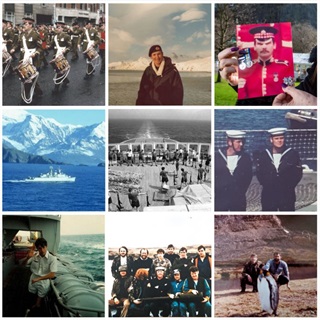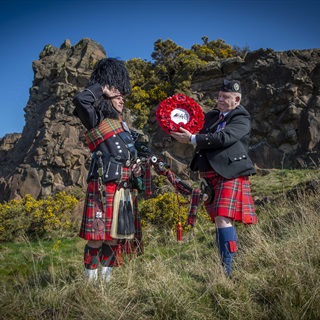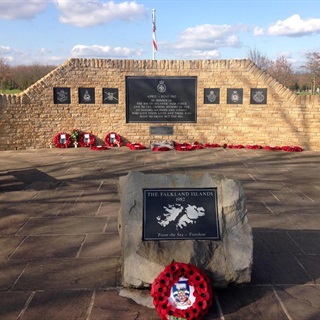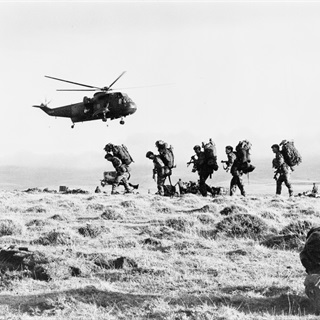Teri Newell was 14 when her father, Pipe Major James Riddell, was sent to the Falklands. His iconic tune, the Crags of Tumbledown Mountain, would become famous around the world, but the man behind it would never be the same.
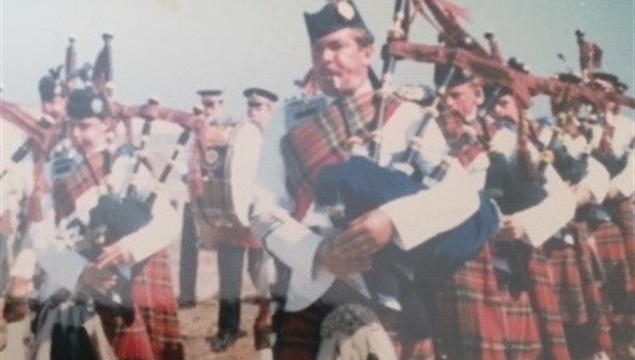
Posted to the Falklands
Teri remembers first hearing about the Falklands crisis on the news, before learning her father would be sent there with the Scots Guards.
She said: “This time it was different. The Falklands were much in the public eye, and he was going off to war. It was really quite scary. I knew he was going off to fight for the country and I didn’t know if I’d ever see him again.
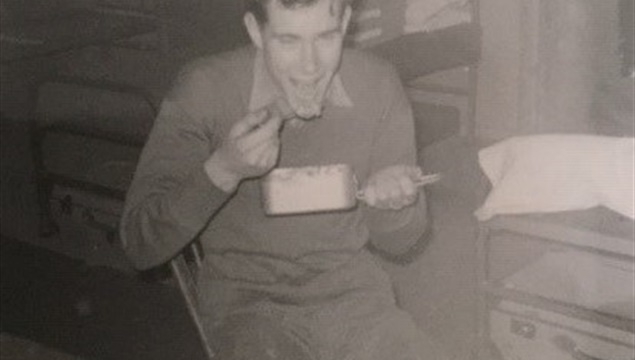
The end of the conflict
On June 13th the Scots Guards attacked Argentinian forces on Mount Tumbledown, which guarded the approach to the Falklands capital, Stanley. Pipe Major Riddell was one of 12 pipers who fought that night.
The Guardsmen engaged in fierce hand-to-hand combat for almost nine hours, in dark, freezing conditions. Although they finally took the stronghold, eight men were killed, as well as a Royal Engineer attached to the battalion.
The Argentinians surrendered the next day. Shortly afterwards, Pipe Major Riddell returned to the summit and played the tune he is now famous for, “The Crags of Tumbledown Mountain”. He told his daughter he had scribbled it on the back of a cigarette packet, although later it was suggested it was on a ration pack.
Teri said: “After the battle, it fell to him as Pipe Major to compose a tune. He told me it just came to him. Things were obviously going through his head at the time, then it all came together.”
Bittersweet news
Back at Chelsea Barracks, the soldiers’ families heard about the ceasefire on the news. But for many, their relief was short-lived. Teri said: “First it was the most fabulous news. Then the next day came the announcement of the fatalities. My mum remembers that, almost in a heartbeat, they went from elation to immense sadness. It was surreal – we wanted to celebrate but then others had lost their husbands and their friends. One of the men killed was our neighbour from across the way. My mum was very close to his wife.”
It was several weeks before Teri’s father and his comrades returned home. She joined other families on a convoy of coaches to meet them at RAF Brize Norton.
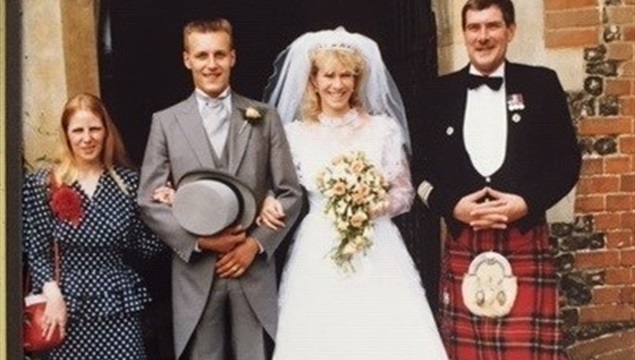
After the conflict
“My dad was a different man afterward,” Teri said. “He had always been quite a shy person outside of work. But he became more insular. He hardly ever talked about his experiences.”
Pipe Major Riddell served for 28 years, leaving in 1991 with an exemplary conduct assessment. His comrades remember him as well-respected and protective of the pipers under his command, although he could be a tough task master.



